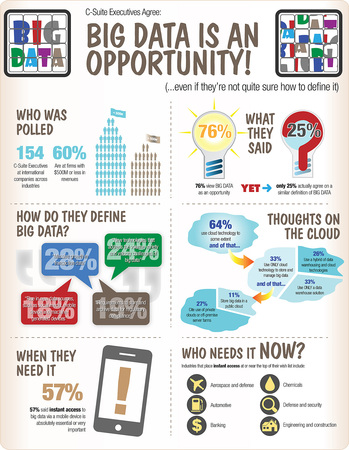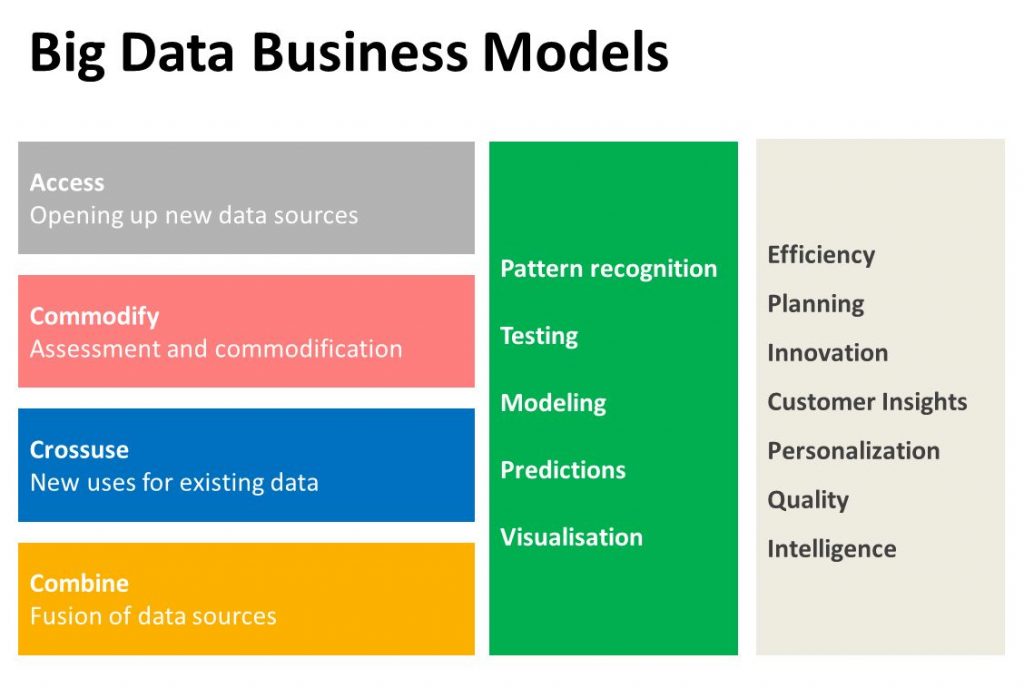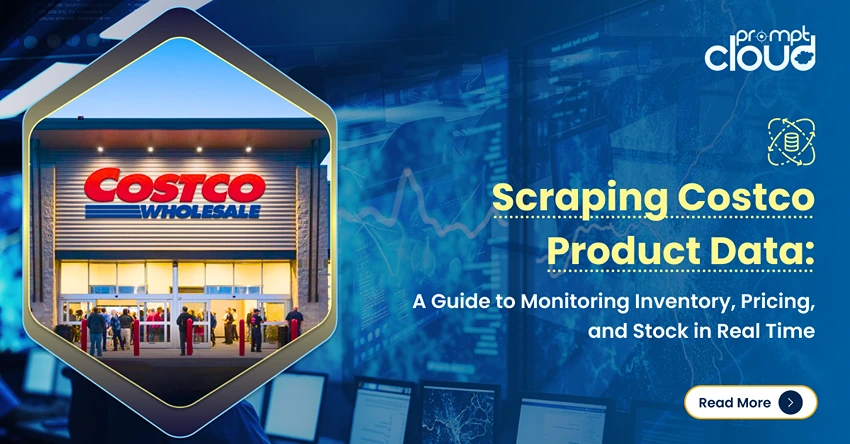There has been a significant shift in the way businesses gather and analyze Big Data. No more can anyone turn a blind eye to the proliferation of Big Data, its applications, and impact. By extension, it only makes sense for small businesses to harness Big Data ventures in terms of strategic planning for improvement as well as growth of the organization.
There are several ways in which large volumes of structured and unstructured data collected over the course of a business’ operations can help make wise, data-driven decisions for business growth. Big data is a relative term with respect to the size of data that becomes big and difficult-to-manage for a company. Any data that is too large to manage and yet at the same time helps identify problems, recognize patterns, and gain meaningful insights is Big data. This data—more specifically the insights from this data help drive sales, predict outcomes, utilize human resources better, and even contribute to employee satisfaction.
So what exactly can a small business do with Big Data? While it may be argued that the investment in Big Data analytics is not worth the boost in efficiency and sales, it should be understood that this new concept can get people to buy into new ideas that will ultimately become the wave of the future. This makes it important to know about the newer techniques of data analysis for better strategic control over business processes.
Big data—the new buzzword
Big data has arrived on the market scene and it is here to stay. In this information age, businesses are accumulating large volumes of customer information across multiple touch points. To be able to make use of this data in a way that it can benefit your business substantially is beyond doubt a good business strategy.
Why should small companies leverage Big Data?
It is interesting to note that 90 percent of the world’s data has been created in just two years. The amount of new structured and unstructured data that can be collected may be understood by statistics that indicate 2,000,000 Google Searches, 685,000 Facebook Updates, 200 Million Sent Emails, and 48 Hours worth of video uploads to YouTube are done every minute.
Thus, while internal data might be huge, it’s not still not big enough for building strategies for the future. Many data providers now facilitate easy collection of data via web scraping and data crawling services. Web scraping has increasingly become more affordable and convenient at the same time and offers excellent penetration in the dynamics of the business world.
Advantages of utilizing Big Data
Broadly speaking, Big Data can be utilized by small companies to improve and enhance their decision-making processes related to risk management, research & development, targeting customers, understanding customer needs and analyzing social behavior. In more specific terms:
Big data can prove to be the much needed competitive edge needed for the survival of the small players in the big market. Access to deep data sources can help boost the marketing efforts to gain an edge over those who do not choose to utilize the insights from big analytics.
Utilizing Big Data can help businesses grow smart by being able to evaluate the effectiveness of their products and services. It is possible to evaluate data better than verbal or written customer responses as analytics can hint at needs that even the customers may not explain. The Big Data strategy can help identify the consumer behavior traits in a greater detail.
Data analytics can work to target products and services closely at consumer demographics, giving small businesses an edge over their close competitors. Personalized solutions for consumers can help capture consumer attention better than any broader looking marketing strategy.
What should small businesses seek from Big Data?
With Big Data having set its foot in the market, new solutions are increasingly being created on the predictions. Increasingly, solutions are now being tuned to synch with the needs of smaller businesses as well. But what exactly should small businesses seek in a big-data solution?
For small businesses, the Big Data solution should be easy and simple in their applicability and usage. It should also be possible to integrate the new capabilities with the existing systems without the hassle of employing specialists because that would mean some extra cost to the small company.
A good Big Data solution for small businesses is one that allows companies to choose only the capabilities they need and not force the pre-integrated package on them. This would not only help provide a cost-effective solution but would also help leverage the solutions and systems already in place without commanding too much effort on the part of the IT department.
For small businesses in their growing years, it is important that the cost and capabilities of the software investments do not come in the way of organizational growth and operational expansion. So, a big-data solution for small businesses must be priced right. At the same time, it should be flexible enough to be readily scaled up with increase in the need for analytics.
Some Big Data solutions for small businesses
Simple solutions such as Google Adwords or Google Analytics are nothing but Big Data solutions for small businesses that help them analyze their target customers and act accordingly. Today, a number of small and medium-sized businesses are successfully mining Big Data by cross-referencing of their internal information with outside sources to increase revenue. This is made possible through:
- A better understanding of customers’ behavior pattern
- Improvement in service offerings with new knowledge
- Reduction in costs by getting rid of inefficiencies and human bias
- New tools provided to employees to help perform their jobs better
With the boom in the Big Data market, there are ample solutions for small companies to choose from. Established giants such as IBM’s Watson Analytics, Google Analytics, SAS, and Microsoft to startups such as Tranzlogic, canopy Labs, Qualtrics and Kaggle offer affordable, cloud-based data-crunching services to small businesses where analytics can play a big role.
The transition from an intuition-driven company to an analytics-driven company
Big data solutions customized to the specific needs of small businesses according to their expertise and competence can help make it practical and affordable to benefit from the vast expanses of opportunity that Big Data holds. All you need to do is to identify one problem area at a time and start mining data for insights on that front.






















